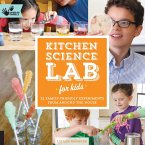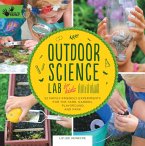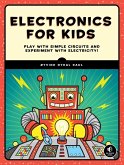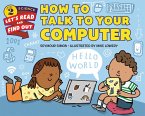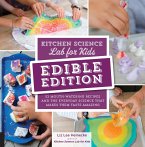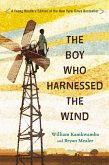Energy Lab for Kids offers 40 discovery-filled and thought-provoking energy projects by Emily Hawbaker, a science educator from the NEED (National Energy Education Development) project-with a foreword by Liz Lee Heinecke, author of Kitchen Science Lab for Kids. Using supplies that you can find around the house or in the grocery store, these exciting projects let you observe, explore, discover, and get energized! We hear about energy on the news, we use it every day, and sometimes we're told we have too much of it. But what is energy-potential, kinetic, chemical, radiant, and thermal? The lab activities in this book will let you explore almost everything about energy-what it is, how we find it, how we use it, and how we can save it. Uniting this collection of science experiments for the kitchen, backyard, or classroom is the goal to explore and discover real energy solutions. The chapters cross all categories-from steam, electricity, and chemical reactions, to water, solar, and wind power-allowing kids to compare and test the different sources and to discover their strengths and failings. Why is one source of energy is more efficient for a one situation but not for another? Why might two energy sources combined work better than a single source? Which sources are renewable? Projects are geared to understanding actual issues in the news today. With an emphasis on inventive exploration, you'll discover that creativity leads to breakthroughs. Learn about:
- chemical, radiant, and thermal energy by activating a glow stick and watching it get brighter in hot water.
- viscosity by sucking soda and chocolate syrup up an "oil pipeline" made from straws.
- solar energy by melting s'mores in a pizza box solar oven.
- wind power by lifting paperclips with a wind turbine made from a cup, paper, tape, and straw.
- calories by burning cheese puffs (and other food) in a homemade calorimeter.
The popular Lab for Kids series features a growing list of books that share hands-on activities and projects on a wide host of topics, including art, astronomy, clay, geology, math, and even how to create your own circus-all authored by established experts in their fields. Each lab contains a complete materials list, clear step-by-step photographs of the process, as well as finished samples. The labs can be used as singular projects or as part of a yearlong curriculum of experiential learning. The activities are open-ended, designed to be explored over and over, often with different results. Geared toward being taught or guided by adults, they are enriching for a range of ages and skill levels. Gain firsthand knowledge on your favorite topic with Lab for Kids.
Dieser Download kann aus rechtlichen Gründen nur mit Rechnungsadresse in A, D ausgeliefert werden.
Hinweis: Dieser Artikel kann nur an eine deutsche Lieferadresse ausgeliefert werden.



